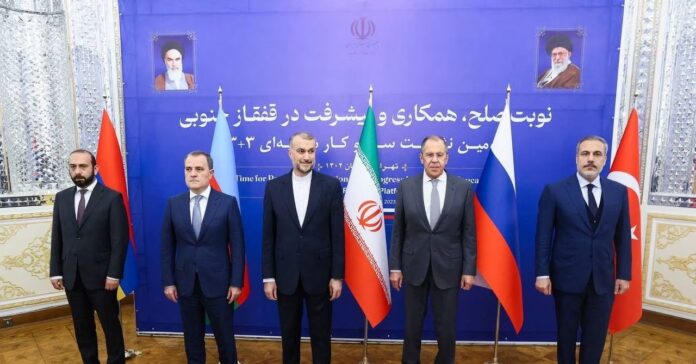TEHRAN (Reuters/Public Radio of Armenia) — The foreign ministers of Armenia and Azerbaijan met on October 23 in Iran, their first talks since Azerbaijan secured control over the territory of Nagorno-Karabakh, with Russia saying the main issue had been resolved pending further work on a peace treaty.
The meeting in the aftermath of Azerbaijan’s lightning offensive into the disputed territory also took place against the background of rising tensions in the Middle East.
“The conflict has, on the whole, been settled. Both sides agree that Karabakh belongs to Azerbaijan and that was the main issue to be settled,” Russia’s Tass news agency quoted Foreign Minister Sergei Lavrov as saying in Tehran.
“Of course, practical steps remain for a full normalization of relations, particularly preparations for a peace treaty, the demarcation of borders and the establishment of economic transport links without impediment.”
Ministers from Iran and Turkey also attended. A joint statement said participants agreed to respect the territorial integrity of countries in the region.
Iran’s foreign minister, Hossein Amirabdollahian, said before the meeting that the talks represented a “historic opportunity…. The war in South Caucasus has ended, and it is time for peace and cooperation.”










